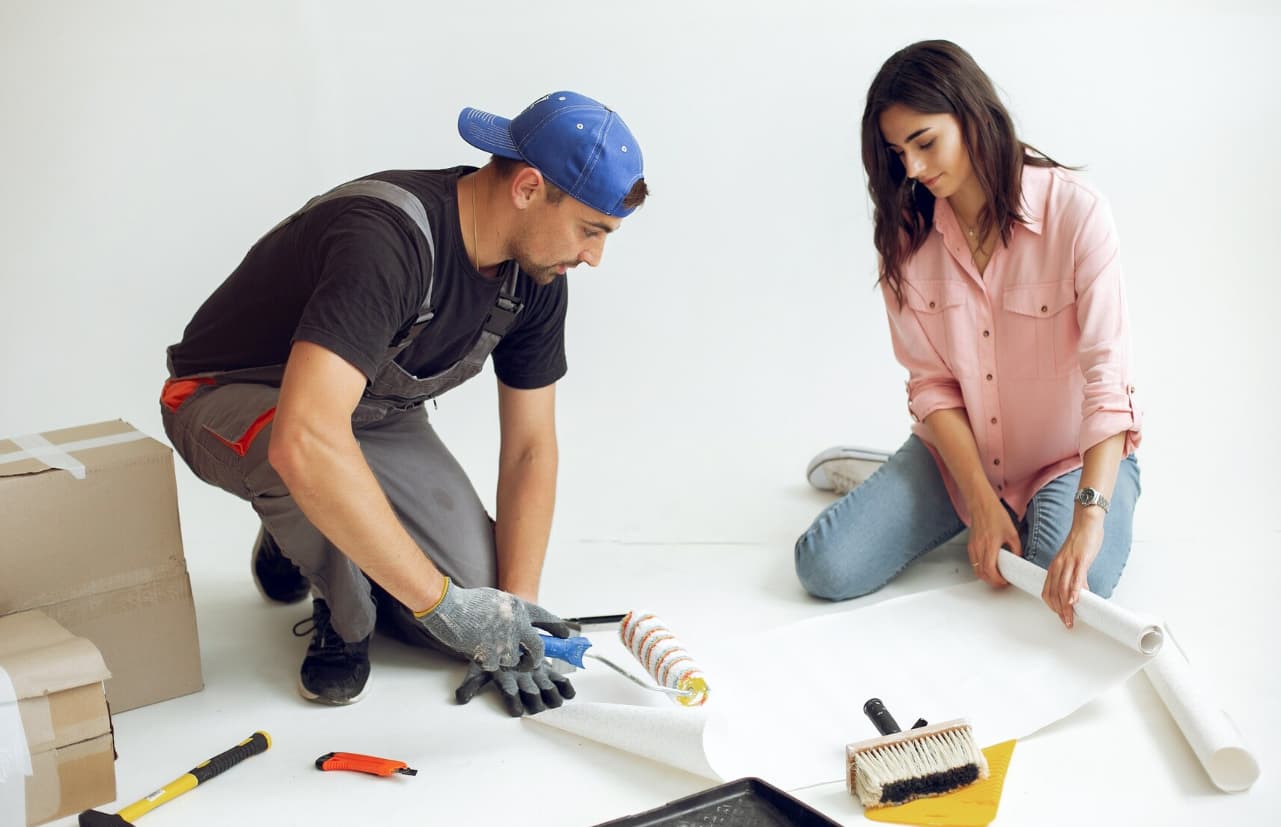Welcome to your ultimate guide on home improvement! Whether you’re a new homeowner or have been living in your house for years, this guide will help you make your living space better.
We’ll cover everything from planning to personalizing your home.
Home improvement isn’t just about making things look nice. It’s about creating a space that works for you and makes you happy.
This guide will show you how to:
- Plan your projects
- Stick to a budget
- Choose what to do first
- Decide if you should do it yourself or hire someone
- Find good deals
- Keep your home in good shape
- Use your space better
- Save energy
- Get the best value for your money
- Make your home truly yours
Faqlogin.com Home Improvement

Let’s dive in and learn how to make your home the best it can be!
The Importance of Home Improvement
Home improvement is super important. Here’s why:
- It makes your homework better: When things work well, life is easier.
- It makes your home more comfy: A comfy home is a happy home.
- It can make your home worth more: If you ever want to sell, this helps.
- It stops small problems from becoming big ones: Fixing things early saves money.
- It lets you show who you are: Your home should reflect you.
Improving your home isn’t just about looks. It’s about making your life better every day. When your home works well and feels good, you feel good too!
Crafting a Solid Plan
Before you start any project, you need a good plan. Here’s how to make one:
- Know what you want: Think about what you need to change in your home.
- Write it down: Make a list of all the things you want to do.
- Set clear goals: Be specific about what you want to achieve.
- Make a timeline: Decide when you want to start and finish each project.
- Be realistic: Don’t try to do too much at once.
A good plan helps you stay on track and avoid stress. It’s like a map for your home improvement journey.
Budgeting for Success
Money matters when it comes to home improvement. Here’s how to budget:
- Know how much you can spend: Look at your savings and income.
- List all costs: Think about materials, tools, and labor.
- Add extra for surprises: Always add 10-20% more for unexpected costs.
- Track your spending: Keep all receipts and write down every expense.
- Be flexible: Sometimes you might need to adjust your plans.
Here’s a simple budget template:
| Item | Estimated Cost | Actual Cost |
|---|---|---|
| Paint | $100 | $90 |
| Brushes | $20 | $25 |
| Labor | $200 | $200 |
| Extra | $32 | $0 |
| Total | $352 | $315 |
Remember, a good budget helps you avoid overspending and stress.
Prioritizing Projects
Not all home improvements are equally important. Here’s how to decide what to do first:
- Safety first: Fix anything dangerous right away.
- Need vs. Want: Do what you need before what you want.
- Big impact, small cost: Look for changes that make a big difference without costing too much.
- Seasonal timing: Some projects are better in certain seasons.
Here’s a simple way to rank your projects:
| Project | Urgency (1-5) | Impact (1-5) | Cost (1-5) | Total Score |
|---|---|---|---|---|
| Fix leaky roof | 5 | 5 | 3 | 13 |
| Paint living room | 2 | 4 | 2 | 8 |
| Update kitchen | 3 | 5 | 5 | 13 |
Higher scores mean you should do those projects first.
DIY vs. Hiring Professionals
Sometimes you can do things yourself, and sometimes you need help. Here’s how to decide:
Do It Yourself (DIY) if:
- The job is simple
- You have the skills
- You have the time
- You have the right tools
- Mistakes won’t be dangerous or expensive
Hire a Pro if:
- The job is complex
- You don’t have the skills
- You don’t have much time
- You need special tools
- Mistakes could be dangerous or costly
Remember, your safety is most important. If you’re not sure, ask an expert.
Research and Price Comparison
Before you buy anything or hire anyone, do your homework:
- Look online: Check prices on different websites.
- Visit stores: Sometimes you can find better deals in person.
- Ask for quotes: Get at least three quotes for big jobs.
- Read reviews: See what other people say about products or services.
- Check for sales: Timing your purchases can save money.
Here’s a simple comparison chart:
| Item | Store A | Store B | Online |
|---|---|---|---|
| Paint (1 gallon) | $30 | $28 | $25 |
| Paintbrush set | $15 | $20 | $18 |
| Ladder | $80 | $75 | $70 |
Remember, the cheapest option isn’t always the best. Look at quality too.
Maintenance and Repairs
Taking care of your home regularly can save you money in the long run. Here’s what to do:
Seasonal Checks:
- Spring: Check for winter damage, clean gutters
- Summer: Check AC, look for leaks during rain
- Fall: Prepare for winter, check the heating system
- Winter: Watch for ice dams, check for drafts
Monthly Tasks:
- Check and replace air filters
- Clean range hood filters
- Check fire extinguishers
Yearly Tasks:
- Get HVAC system serviced
- Inspect roof
- Clean chimney (if you have one)
Keeping up with these tasks can prevent big, expensive problems later.
Maximizing Space Efficiency
Making the most of your space can make your home feel bigger and work better. Try these tips:
- Declutter: Get rid of things you don’t need.
- Use vertical space: Install shelves or tall cabinets.
- Choose multi-use furniture: Like a coffee table with storage.
- Organize closets: Use organizers to make more space.
- Rearrange rooms: Sometimes moving furniture can open up space.
Here’s a before-and-after example:
| Room | Before | After |
|---|---|---|
| Living Room | Cluttered, feels small | Open, organized, feels spacious |
| Bedroom | Messy closet, items on the floor | Tidy closet, clear floor, feel calm |
| Kitchen | Crowded counters | Clear counters, more workspace |
Small changes can make a big difference in how your space feels and works.
Incorporating Energy-Saving Features
Saving energy is good for the planet and your wallet. Here are some ways to do it:
- Switch to LED bulbs: They use less energy and last longer.
- Install a smart thermostat: It learns your schedule and saves energy.
- Upgrade appliances: Look for Energy Star labels.
- Improve insulation: Keep heat in during winter and out during summer.
- Use solar power: Consider solar panels for long-term savings.
Here’s how much you might save:
| Change | Yearly Savings |
|---|---|
| LED bulbs | $75 |
| Smart thermostat | $180 |
| Energy Star appliances | $100-$500 |
| Better insulation | $200-$400 |
| Solar panels | $1,000-$2,000 |
Remember, these are estimates. Your actual savings may vary.
Balancing Quality and Cost
Getting good value means finding a balance between quality and cost. Here’s how:
- Research brands: Some are known for quality, others for low prices.
- Read reviews: See what other homeowners say.
- Compare warranties: A longer warranty can mean better quality.
- Think long-term: Cheaper isn’t always better if it wears out fast.
- Look for sales on quality items: You can get good stuff for less.
Here’s an example of comparing options:
| Item | Low-Cost Option | Mid-Range Option | High-End Option |
|---|---|---|---|
| Price | $100 | $200 | $300 |
| Warranty | 1 year | 5 years | 10 years |
| Expected Lifespan | 2-3 years | 5-7 years | 10+ years |
| User Reviews | Mixed | Mostly Positive | Very Positive |
Sometimes spending a bit more upfront can save money over time.
Personalizing Your Home
Making your home feel like “you” is important. Here are some ways to do it:
- Choose colors you love: Paint is an easy way to change a room.
- Display personal items: Photos, art, or collections show who you are.
- Pick furniture that fits your style: Comfy? Modern? Classic? Choose what you like.
- Add plants: They bring life to any room.
- Use lighting to set the mood: Different lights can change how a room feels.
Remember, there’s no “right” way to decorate. Your home should make you happy when you walk in the door.
Also Check:
Conclusion:
Improving your home is a journey. It takes time, effort, and sometimes money. But the results are worth it. A well-maintained, efficient, and personal home makes life better every day.
Remember these key points:
- Plan carefully
- Budget wisely
- Prioritize what’s important
- Learn when to DIY and when to hire help
- Do your research before buying
- Keep up with maintenance
- Use your space smartly
- Save energy where you can
- Balance quality and cost
- Make your home truly yours
Start small if you need to. Even little changes can make a big difference. The most important thing is to create a home that works for you and makes you happy.

